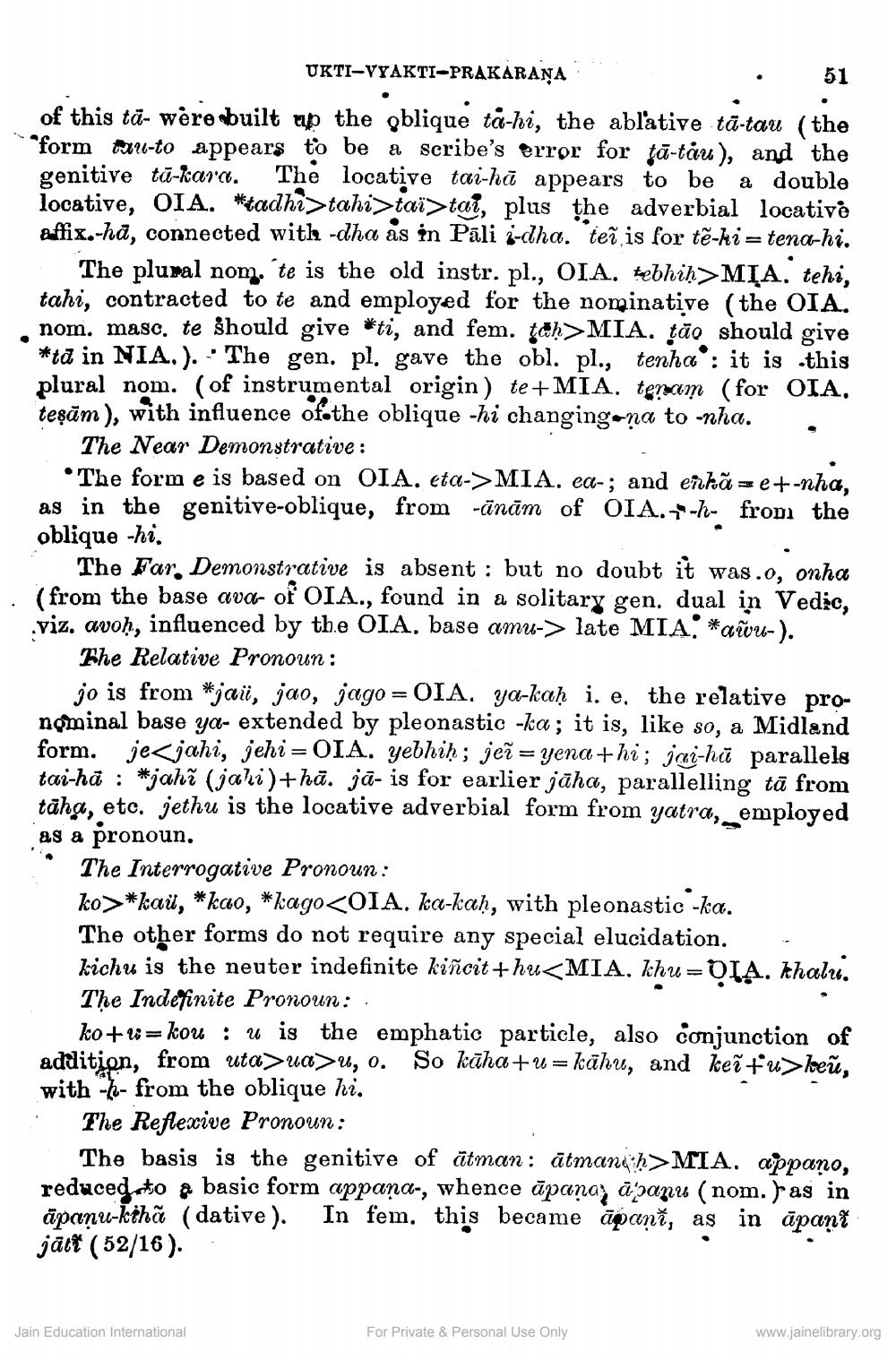________________
51
Situatave
URTI-VYAKTI-PRAKARANA of this tä- were built up the gblique ta-hi, the ablative tā-tau (the form mou-to appears to be a scribe's error for tā-tau), and the genitive tū-kara. The locative tai-hū appears to be a double locative, OIA. *tadhı>tahi>taï>tat, plus the adverbial locative suffix.cha, connected with dha as in Pāli 4-dha. "teñ is for tê-ki = tena-hi.
The plural nom. 'te is the old instr. pl., OIA. tebhiḥ>M/A, tehi, tahi, contracted to te and employed for the nominative (the OIA. nom. masc. te should give *ti, and fem. tah>MIA. tão should give *ta in NIA.). · The gen. pl. gave the obl. pl., tenha': it is this plural nom. (of instrumental origin) te+MIA. tenam (for OIA. teşām), with influence of the oblique -hi changing-na to -nha. .
The Near Demonstrative : • The form e is based on OIA. eta->MIA. ea-; and enkā=e+-nha, as in the genitive-oblique, from -ānām of OIA. --- from the oblique -hi.
The Far. Demonstrative is absent : but no doubt it was.o, onha . (from the base ava- of OIA., found in a solitary gen. dual in Vedic, viz. avoḥ, influenced by the OIA. base amu-> late MIA *awu-).
The Relative Pronoun:
jo is from *jai, jao, jago = OIA. ya-kaħ i. e, the relative prongminal base ya- extended by pleonastic -ka; it is, like so, a Midland form. je<jahi, jehi = OIA. yebhiḥ; jež = yena+hi; jai-hü parallels tai-hà : *jahi (jahi)+hā. jā- is for earlier jāha, parallelling tā from täha, etc. jethu is the locative adverbial form from yatra, employed as a pronoun.
The Interrogative Pronoun: ko>*kai, *kao, *kago<DIA. ka-kaḥ, with pleonastic -ka. The other forms do not require any special elucidation. kichu is the neuter indefinite kiñcit+hu<MIA, khu =DIA. khali. The Indefinite Pronoun: .
ko+u = kou : w is the emphatic partiele, also conjunction of addition, from uta>ua>u, 0. So kāha+u = kāhu, and keã+u>keū, with -- from the oblique hi.
The Reflexive Pronoun:
The basis is the genitive of ātman: ātmanaḥ>MIA. appano, reduceduto a basic form appaņa-, whence āpaņa; apanu (nom. Jas in āpanu-kihã (dative). In fem. this became āpană, as in āpant jaci (52/16).
Jain Education International
For Private & Personal Use Only
www.jainelibrary.org




